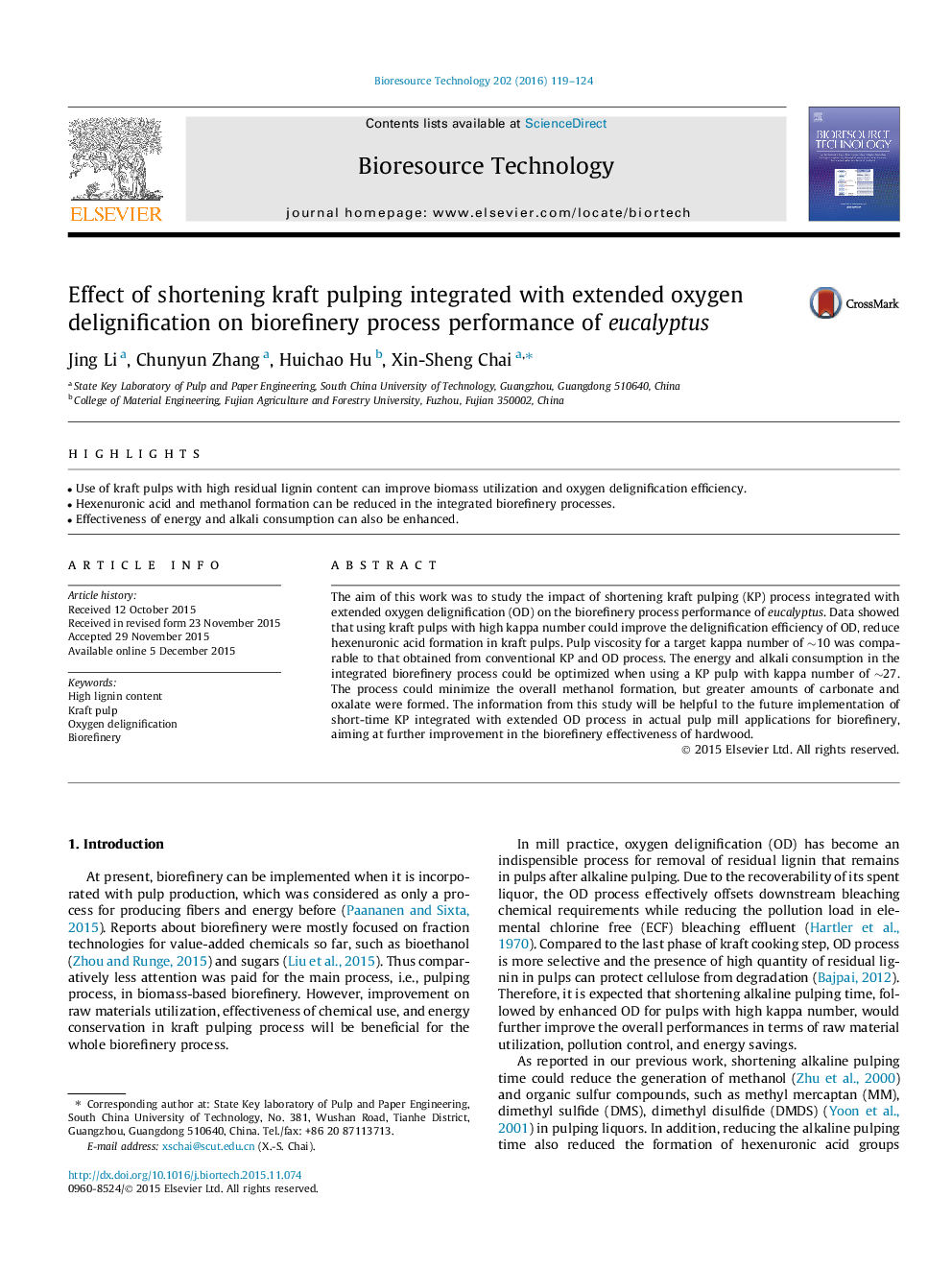| Article ID | Journal | Published Year | Pages | File Type |
|---|---|---|---|---|
| 679308 | Bioresource Technology | 2016 | 6 Pages |
•Use of kraft pulps with high residual lignin content can improve biomass utilization and oxygen delignification efficiency.•Hexenuronic acid and methanol formation can be reduced in the integrated biorefinery processes.•Effectiveness of energy and alkali consumption can also be enhanced.
The aim of this work was to study the impact of shortening kraft pulping (KP) process integrated with extended oxygen delignification (OD) on the biorefinery process performance of eucalyptus. Data showed that using kraft pulps with high kappa number could improve the delignification efficiency of OD, reduce hexenuronic acid formation in kraft pulps. Pulp viscosity for a target kappa number of ∼10 was comparable to that obtained from conventional KP and OD process. The energy and alkali consumption in the integrated biorefinery process could be optimized when using a KP pulp with kappa number of ∼27. The process could minimize the overall methanol formation, but greater amounts of carbonate and oxalate were formed. The information from this study will be helpful to the future implementation of short-time KP integrated with extended OD process in actual pulp mill applications for biorefinery, aiming at further improvement in the biorefinery effectiveness of hardwood.
